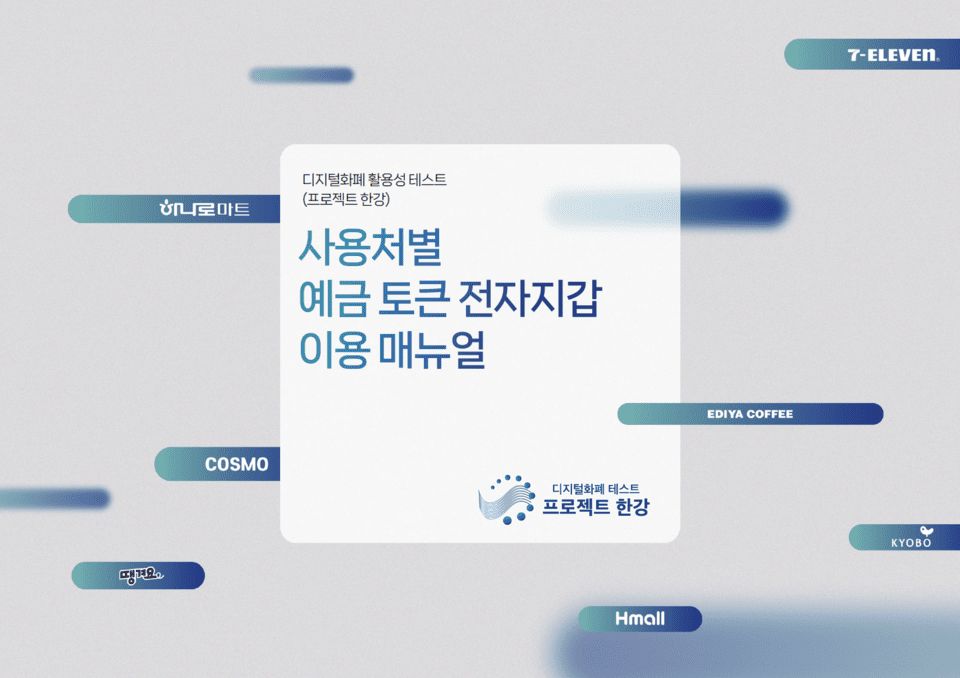The Ministry of Science and ICT, the Bank of Korea, the Financial Services Commission, and the Financial Supervisory Service, in consultation with related agencies such as the Deposit Insurance Corporation, Bank Federation, and Korea Internet & Security Agency (KISA), announced plans to commence real transactions for the ‘Digital Currency Test (Project Kang)’ with general users and to start recruiting participants.

The test involving real transactions is part of Project ‘Han River,’ an initiative supporting real users to engage in transactions with digital currency. Scheduled to begin on March 25 by recruiting participants in advance and to run from April 1 to June 30, the project aims to verify the actual usability of a digital currency-based deposit token electronic wallet.
Participants in the real transaction test will convert their bank deposits into deposit tokens to purchase goods and services at designated offline and online venues. Deposit tokens will be issued by participating banks, while the Bank of Korea will facilitate real-time settlement of interbank transactions in the form of digital currency.
The banks participating in the transactions include KB, Shinhan, Woori, KEB Hana, Industrial Bank of Korea, NongHyup, and Busan Bank, with a preliminary participant cap of a maximum of 160,000 individuals per bank and a total not exceeding 100,000 individuals. Electronic wallet setup will be conducted online, with limits set at 1 million won for deposit tokens and a conversion limit of 5 million won.
Designated venues for deposit token transactions include offline retailers such as Kyobo Book Centre (excluding online), 7-Eleven (excluding unmanned stores), Ediya Coffee, and selected NongHyup Hanaro Mart branches, as well as online shopping platforms like Hyundai Home Shopping, the app ‘DdeangGyoYo,’ and K-POP merchandise sales platform (COSMO). Payments can be made via QR code, with the capability to transact regardless of the issuing bank of the wallet.
This real transaction initiative aims to comprehensively evaluate the technical maturity of deposit tokens, including payment stability, security, and user experience. The deposits from participating individuals will be subject to deposit insurance, and issuing banks are required to hold at least 7% of the outstanding deposit tokens as reserves.
Additionally, in collaboration with local governments and universities in Seoul, Daegu, and Busan, the Ministry of Science and ICT and KISA will simultaneously conduct a pilot project for digital voucher verification. These vouchers will be used in areas closely related to the public, such as youth support, childcare, and small business support. The testing will also cover the verification of feature simplification in settlements and fraud prevention through deposit token programmability.
After the transaction period concludes, any remaining deposit token balances will be automatically reimbursed to the participant’s original bank account, with subsequent experiments being planned based on participant feedback.